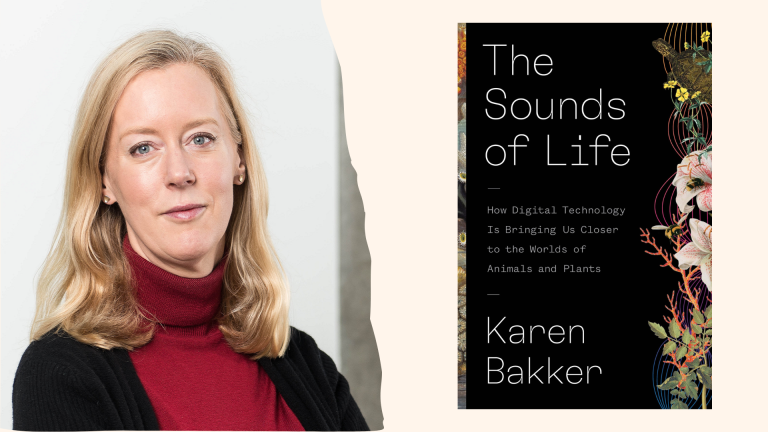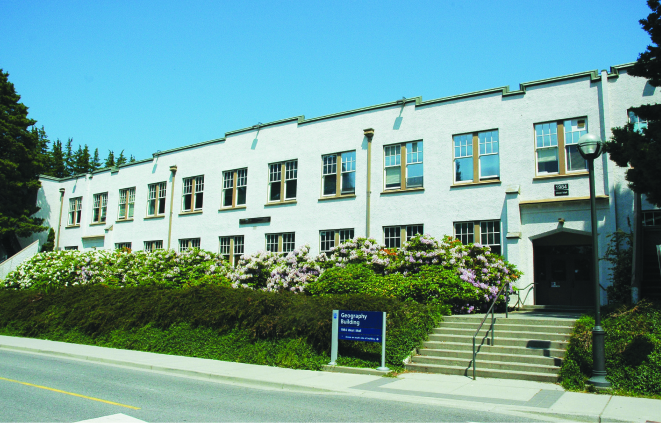

A new book by UBC Geography professor Karen Bakker, a 2022 Guggenheim Fellow, aims to take readers into the hidden realm of nature’s sounds.
The Sounds of Life explores how novel digital technologies are allowing scientists to tune in to the vibrant conversations happening all across the natural world — but beyond human hearing range.
The book shares fascinating and surprising stories of nonhuman sound, interweaving insights from technological innovation and traditional knowledge. We are introduced to scientists using sound to protect and regenerate endangered species from the Great Barrier Reef to the Arctic and the Amazon.
We discover the shocking impacts of noise pollution on both animals and plants. We learn how artificial intelligence can decode nonhuman sounds, and meet the researchers building dictionaries in East African Elephant and Sperm Whalish. At the frontiers of innovation, we explore digitally mediated dialogues with bats and honeybees. Technology often distracts us from nature, but what if it could reconnect us instead?
In addition to awakening our sense of wonder, Bakker hopes to start a conversation about how the role these technological advances will play in our relationships with nonhuman beings in the future.
Do we have the right to collect all of this data from individuals having what we would legitimately understand to be a conversation, but without their consent? How do we construct an ethical framework for a technology that has already begun utilizing honeybee communication for military purposes?
Bakker also highlights the importance of Indigenous data sovereignty, and understanding the colonial practices that underpin conservation work which is not led by Indigenous peoples.
The Sounds of Life is out now, from Princeton University Press.
Nominated by Malcolm Gladwell for October’s ‘Next Big Ideas’ Club
NPR Science Friday Book Club Book of the Month, November 2022
“Thoughtful and rigorous…meticulously researched and colorfully presented…in a way that is accessible to non-experts. A wonderful mix of animal ecology, narratives of science-doing, futurism, and accounts of Indigenous knowledge that is as interdisciplinary as the field itself.” – Science
You can learn more about the book, and the ideas and questions it raises, in this interview with Prof. Bakker for NPR’s Soundside podcast:


